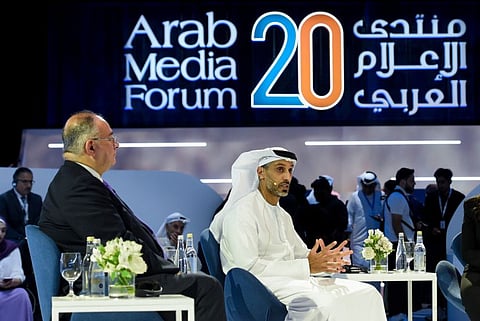Arab Media Forum 2022 in Dubai: Who will govern media in metaverse?
Regulation must keep up with fast-changing content interface to protect users, expert says

Dubai: While the media sector is expected to have relative ease in migrating to metaverse because of innovation, there is also a need to strengthen regulation and governance to ensure a safe environment that will put “humans at the centre of the evolving technology”.
The call was made by Khalfan Belhoul, CEO of Dubai Future Foundation, during a breakout session titled ‘Media and the Metaverse’ at the 20th Arab Media Forum (AMF) in Dubai on Tuesday.
Hundreds of media personalities and professionals from across the Arab world have gathered for the annual event to discuss the future of media in the region.
Belhoul said: “Media is always at the forefront innovation. But let us also not forget human experience and governance. Now that everything is at the press of a button – who will regulate and ensure a safe environment?”
He added that the same issue was also tackled last week during the Dubai Metaverse Assembly, where he had underscored “embracing the metaverse is about creating a digital environment that is safe for humans”.
He reiterated on Tuesday: “Humans should be put at the heart of metaverse – meaning proper regulation [that prevents cybercrime] should be at par or ahead of the technological development.”
‘$3 trillion impact’
At the same AMF session, Fares Akkad, Meta managing director in MENA region, said metaverse is the inevitable development of the internet.
He described it as the ‘new way’ in technology that will impact the global economy with an estimated reach of $3 trillion in the next decade. Metaverse in particular will contribute around $360 billion in the MENA region.
He said to prevent the misuse of metaverse, infrastructure should be put in place with an allocation of around $10 billion annually for research and development that will go to security and data protection.
“The infrastructure will support other sectors such as medical and educational institutions, and we see that innovation comes directly from the community,” he added.



